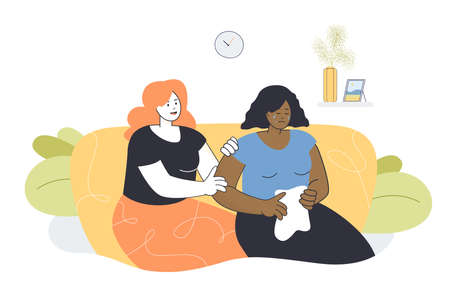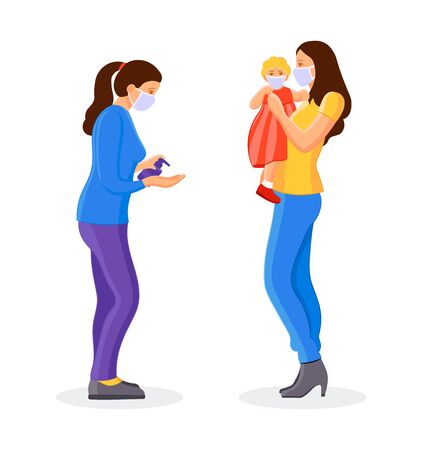1. Understanding the Unique Pressures Faced by UK Parents
Being a parent in the UK is an adventure like no other—one filled with love, laughter, and let’s be honest, a fair share of sleepless nights and worries. From my own experience as a new dad, I quickly realised that there’s a lot more to parenthood than just nappy changes and midnight feeds. The reality for many parents across Britain is juggling work commitments, childcare costs, and the ever-present pressure to ‘keep up appearances’—whether that’s at the school gates or on social media. We’re often expected to have it all together, even when we feel anything but. Sadly, it means our mental health often ends up at the bottom of the priority list. Here’s a quick look at some of the most common pressures we face:
| Challenge | How It Feels |
|---|---|
| Sleepless nights | Constant exhaustion, short temper, trouble focusing |
| Financial pressures | Worrying about bills, childcare fees, and providing for the family |
| Social expectations | Feeling judged for parenting choices, trying to look like you’ve got it together |
| Lack of support networks | Feeling isolated, especially if family lives far away or friends are in different life stages |
The truth is, these challenges aren’t just ‘part of the job’—they’re real pressures that can take a toll on our wellbeing. And yet, in the hustle of daily life and the British ‘stiff upper lip’ culture, talking about our struggles can feel like admitting defeat. It’s time we recognise that prioritising our mental health isn’t selfish—it’s essential for us and our families.
Breaking the Silence: The Importance of Honest Conversations
If there’s one thing I’ve learned as a new dad, it’s that bottling things up is a recipe for disaster. In the UK, we’re often brought up with the classic “stiff upper lip” mentality, but when it comes to mental health—especially as parents—it’s time we put the kettle on and have a proper natter. Sharing our struggles over a cuppa or at a local parent-and-baby group can be an absolute lifeline, both for mums and dads.
Why Honest Conversation Matters
When you open up about your challenges—whether it’s sleepless nights, feelings of isolation, or anxiety about getting things right—you quickly realise you’re not alone. The simple act of talking takes away so much of the stigma. You find common ground, and suddenly that weight on your shoulders feels just a little bit lighter.
Benefits of Speaking Openly About Parental Mental Health
| Benefit | How It Helps |
|---|---|
| Reduces Isolation | Connecting with others who “get it” helps you feel part of a supportive community. |
| Normalises Experiences | You realise your worries and struggles are more common than you thought. |
| Promotes Early Support | Friends or group members may signpost helpful resources or offer practical advice. |
| Boosts Confidence | Hearing others’ stories reassures you that ups and downs are part of the journey. |
| Encourages Self-care | You’re more likely to take time for yourself when you see others doing the same. |
Real Life Connections Over a Cuppa
I’ll never forget my first chat at our local baby group in Manchester. Sharing my experience—warts and all—over a mug of tea with another dad made me feel heard. Suddenly, it wasn’t just me facing those midnight meltdowns or doubting if I was doing enough. That honest conversation turned out to be a real turning point, helping me to breathe easier and enjoy those small parenting wins. So don’t underestimate the power of opening up—the benefits ripple through every aspect of family life.

3. Challenging Stigma: Changing Attitudes Across British Communities
Let’s be honest—parenting in the UK still comes with a hefty dose of “stiff upper lip” expectations. Many of us grew up hearing that we should just “get on with it” or that talking about feelings was a bit too much like airing your dirty laundry. But as a new dad fumbling through sleepless nights and nappy changes, I quickly realised how isolating these outdated taboos can be. It’s not just me; countless parents across Britain feel pressure to appear in control, even when they’re struggling inside.
Social norms in different parts of the UK can make opening up about mental health particularly tough. In smaller towns and rural communities, the fear of being judged or labelled as “not coping” is real. Even in busy cities like London or Manchester, there’s this unspoken rule that you should keep calm and carry on—no matter what.
Grassroots Movements Making a Difference
Thankfully, change is brewing at the grassroots level. Across the UK, local initiatives are challenging old-fashioned attitudes by creating safe spaces for mums and dads to speak openly and honestly. These community-driven efforts range from parent support groups in village halls to mental health drop-ins at children’s centres. They might not always make national headlines, but for many parents, these movements are a lifeline.
Spotlight on Local Initiatives
| Initiative | Location | Main Focus |
|---|---|---|
| Dads Matter UK | Merseyside & North West England | Peer support groups for fathers struggling with postnatal depression and anxiety. |
| Bluebell Care | Bristol & South West | Workshops and one-to-one support for parents facing perinatal mental health challenges. |
| Mothers for Mothers | Bristol & Somerset | Helpline and group sessions run by mums who’ve “been there”. |
| PANDAS Foundation | UK-wide (with local branches) | Online & face-to-face groups offering advice, signposting, and empathy. |
The Ripple Effect of Honest Conversation
I’ve seen first-hand how just one honest conversation can break down walls. When parents share their struggles at playgroup or over a cuppa at the park, it sends out ripples—suddenly, it’s okay for others to admit they’re finding it tough too. The more we challenge stigma within our own circles and communities, the closer we get to a culture where parental mental health is taken seriously—and nobody has to go it alone.
4. Everyday Tools for Opening Up
If you’re anything like me, finding the right words to talk about how you’re really feeling as a parent can feel harder than getting a toddler into wellies during a downpour. But open conversation is key, and there are practical ways to make it part of our everyday British lives – whether it’s at the school gates, during a quick natter with your mate over a cuppa, or even when chatting with your GP.
Breaking the Ice: Where and How?
| Situation | What You Might Say |
|---|---|
| Playground Chat | “Been one of those weeks – anyone else just absolutely knackered?!” |
| The School Run | “I don’t know about you, but I’m finding mornings a bit overwhelming lately.” |
| With Your Partner | “I could use a proper chat tonight, just to get things off my chest.” |
| Health Visitor Check-In | “Can I be honest? I’ve been struggling a bit and not sure if this is normal.” |
| GP Appointment | “I wanted to talk about my mental wellbeing as well as the little one’s check-up.” |
Tips for Starting Conversations That Matter
- Pace Yourself: You don’t have to share everything all at once. Even mentioning you’ve had a tough day can help break the silence.
- Use Humour: We Brits love a good laugh. Sometimes opening up with a joke (“Surviving on tea and biscuits today!”) can make it less daunting.
- Buddy Up: If you find it easier, start conversations while walking side-by-side (like on the walk home from school). It feels less intense than face-to-face.
- Name Your Feelings: Saying “I feel…” instead of “Everything’s fine” gives others permission to do the same.
- Create Small Routines: Make regular check-ins part of your routine—like a weekly coffee catch-up with another parent or sharing ‘highs and lows’ around the dinner table.
When Professional Help Feels Daunting
If speaking to your GP or health visitor feels intimidating, remember they’re used to hearing about mental health concerns. Sometimes just having a note in your phone with what you want to say can ease nerves.
A Little Encouragement Goes a Long Way
I’ve found that when I took that first step—whether it was an honest WhatsApp to my best mate after a sleepless night or a brave chat with our lovely health visitor—it never ended in judgement. More often than not, it opened doors for others to share their own struggles too. So next time you’re tempted to keep quiet, try one of these tools. You might be surprised how much lighter things feel afterwards.
5. Finding and Building Your Support Network
As a new dad myself, I quickly learned that parenting can feel lonely at times—especially when you’re battling mental health worries behind closed doors. But one of the best ways to break the stigma and look after your own wellbeing is by reaching out and building a support network. Across the UK, there are loads of options for parents to connect with others who understand what you’re going through.
Local Children’s Centres
Most towns and cities in the UK have local children’s centres, which are brilliant for meeting other parents in your area. These centres often run free or low-cost groups like stay-and-plays, baby massage, and parenting workshops. Not only do they give your little ones a place to play, but you also get to chat with other mums and dads—sometimes just having someone to share a cuppa with can make all the difference.
Online Communities
If getting out and about feels daunting (or if you’re up for those 2am feeds), online communities are a lifeline. There are UK-specific forums, social media groups, and apps where parents swap advice, share stories, or just have a bit of a moan on tough days. Here’s a quick comparison of some popular online spaces for parents:
| Platform | Type of Support | UK-Focused? |
|---|---|---|
| Mumsnet | Discussion forums on all things parenting, including mental health | Yes |
| Dadsnet | Advice & peer support specifically for dads | Yes |
| Netmums | Local meet-ups, advice boards, mental health chat rooms | Yes |
Charity Helplines & Organisations
If you need someone to talk to right away or want confidential advice, several UK charities offer helplines and support services tailored for parents:
- Samaritans – Free 24/7 listening service: 116 123
- PANDAS Foundation – Perinatal mental health support: 0808 1961 776
- NCT Parent Support Line – Practical & emotional support: 0300 330 0700
Making That First Step
I know how intimidating it can be to reach out—I was nervous the first time I joined a parent group too! But whether it’s popping into your local children’s centre, sending a message in an online forum, or picking up the phone to a helpline, remember that you’re not alone. So many parents across the UK are facing similar struggles, and by connecting with each other, we take one more step towards breaking the silence around parental mental health.
6. The Role of Partners, Families, and Employers
Being a parent in the UK is a bit like trying to assemble flat-pack furniture without the instructions—rewarding, but full of unexpected challenges. When it comes to mental health, partners, extended family, and our workplaces all have massive roles to play in breaking down the old British “keep calm and carry on” attitude. From my own experience as a new dad fumbling through sleepless nights and nappy changes, I’ve learnt how crucial the support network around us truly is.
The Importance of Open Support at Home
Let’s be honest: no one can do this parenting thing alone. Partners are often the first line of defence when things get tough. Simply asking “How are you really feeling?” or sharing your own worries can open doors for more honest conversations. In many British homes, we’re taught to soldier on, but swapping that stiff upper lip for a cuppa and a real chat can make all the difference.
Family Beyond the Front Door
It’s not just about the person you share nappies and night shifts with. Grandparents, siblings, and even mates down the road can offer perspective, practical help, or just a listening ear. Sometimes it’s those Sunday roasts or WhatsApp groups where someone finally feels safe enough to say, “I’m struggling.” Here’s how different family members can help:
| Family Member | How They Can Help |
|---|---|
| Partner | Regular check-ins; sharing responsibilities; being open about emotions |
| Grandparents | Offering childcare breaks; sharing their own experiences |
| Siblings & Friends | Providing non-judgemental support; encouraging professional help if needed |
The British Workplace: More Than Just a Paycheque
A lot of us spend almost as much time at work as we do at home (if not more). UK employers have a unique opportunity—and responsibility—to foster an environment where parents feel comfortable talking about mental health without fear of judgement or repercussions.
What Workplaces Can Do:
- Mental Health First Aiders: Training staff so there’s always someone to talk to confidentially.
- Flexible Working: Allowing parents to manage nursery runs or doctor’s appointments without guilt.
- Open Door Policies: Encouraging managers to check in on their team’s wellbeing—not just their deadlines.
By bringing these groups together—our partners, families, and employers—we can create a culture across the UK where talking about mental health becomes as normal as talking about the weather (and let’s face it, we Brits do that plenty!). If everyone chips in with understanding and openness, we’ll go a long way toward destigmatising mental health for parents everywhere.
7. Moving Forward: Creating a Culture of Openness for the Next Generation
As parents, we have a unique opportunity—and responsibility—to shape the way our children view mental health. In the UK, where the “stiff upper lip” mentality has long been part of our cultural fabric, it’s time to show our little ones that it’s perfectly normal to talk about feelings and struggles. By leading by example, we can help break down the old stigmas and foster a new culture where openness is encouraged.
Let’s be honest: kids are sponges. They pick up on how we handle stress, sadness, or even those days when we just feel a bit “off.” If we openly acknowledge our emotions and seek support when needed—whether it’s chatting with a mate over a cuppa or reaching out for professional help—we teach our children that it’s okay not to be okay. This isn’t just about words; it’s about showing them through everyday actions.
| Old Approach | New Approach |
|---|---|
| Bottling up emotions | Openly discussing feelings |
| Avoiding difficult conversations | Encouraging honest chats at home |
| Seeing help-seeking as weakness | Viewing support as strength |
By creating an environment at home where everyone feels safe to express themselves, we’re not only supporting our own well-being but also giving our children the tools they’ll need throughout their lives. It might be as simple as having regular check-ins at dinner or sharing stories about your own day—the ups and the downs. Remember, it’s these small moments that build trust and resilience.
Practical Tips for UK Parents
- Normalise talking about emotions—even if it feels awkward at first.
- Use resources available in your local area, like parent groups or NHS mental health support lines.
- Share age-appropriate stories about times you’ve asked for help.
The Ripple Effect
If more of us start these conversations, imagine the impact across playgrounds, schools, and communities all over Britain. We’ll raise a generation who know that asking for help is brave—not shameful. Ultimately, this openness will create a brighter, more supportive future for families everywhere.
Your Role Starts Today
No one gets parenting right all the time (I certainly don’t!), but being honest about our feelings is one of the best legacies we can pass on. Let’s champion open conversation—not just for ourselves, but for every child growing up in the UK.


